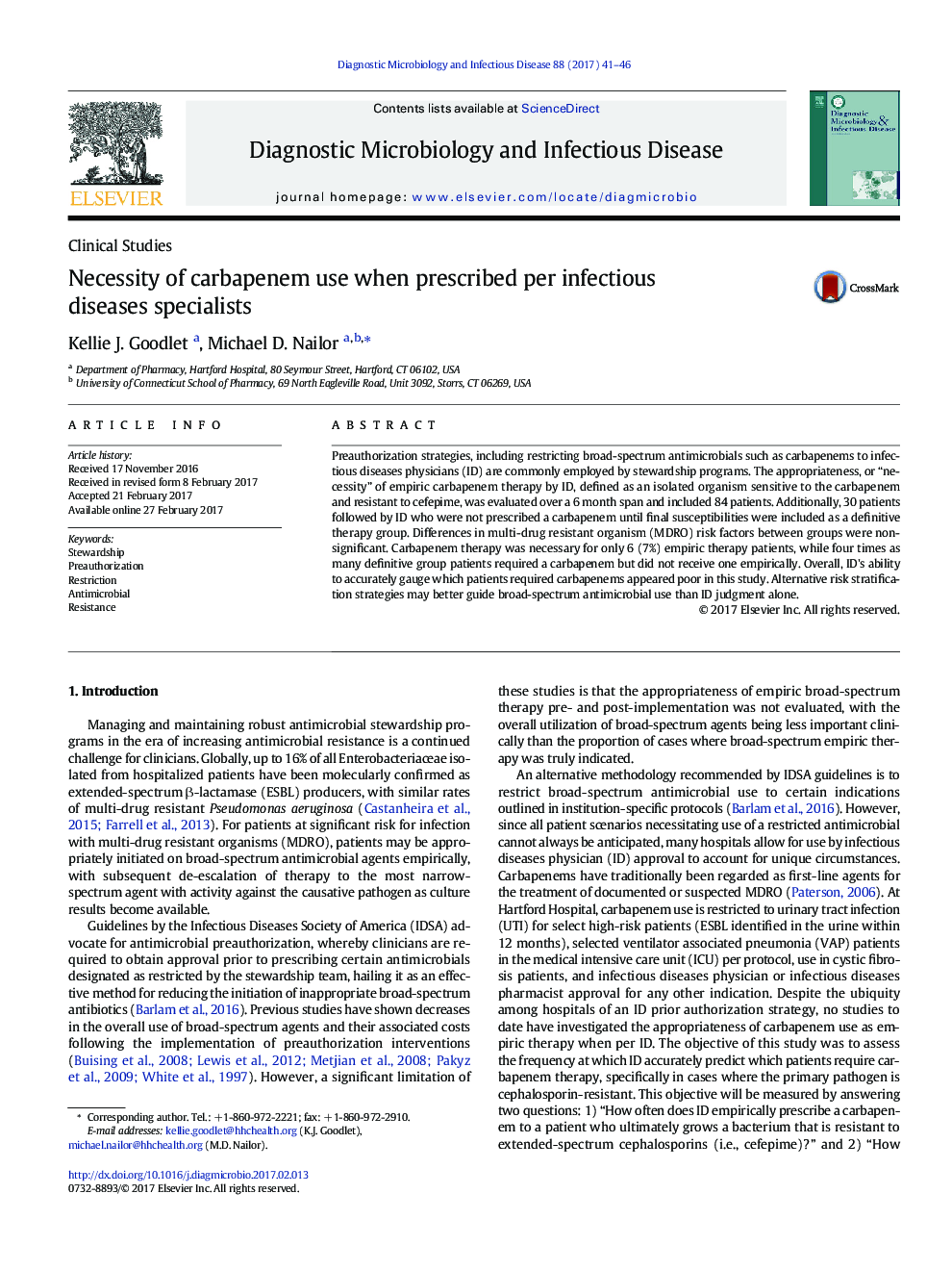| کد مقاله | کد نشریه | سال انتشار | مقاله انگلیسی | نسخه تمام متن |
|---|---|---|---|---|
| 5665935 | 1407778 | 2017 | 6 صفحه PDF | دانلود رایگان |
- Necessity of infectious diseases physician carbapenem prescribing was examined.
- Few patients prescribed carbapenems grew a cephalosporin-resistant organism.
- More cephalosporin-resistant organisms were missed than were identified.
- Physician judgment is insufficient to ensure optimal carbapenem use.
Preauthorization strategies, including restricting broad-spectrum antimicrobials such as carbapenems to infectious diseases physicians (ID) are commonly employed by stewardship programs. The appropriateness, or “necessity” of empiric carbapenem therapy by ID, defined as an isolated organism sensitive to the carbapenem and resistant to cefepime, was evaluated over a 6Â month span and included 84 patients. Additionally, 30 patients followed by ID who were not prescribed a carbapenem until final susceptibilities were included as a definitive therapy group. Differences in multi-drug resistant organism (MDRO) risk factors between groups were non-significant. Carbapenem therapy was necessary for only 6 (7%) empiric therapy patients, while four times as many definitive group patients required a carbapenem but did not receive one empirically. Overall, ID's ability to accurately gauge which patients required carbapenems appeared poor in this study. Alternative risk stratification strategies may better guide broad-spectrum antimicrobial use than ID judgment alone.
Journal: Diagnostic Microbiology and Infectious Disease - Volume 88, Issue 1, May 2017, Pages 41-46
